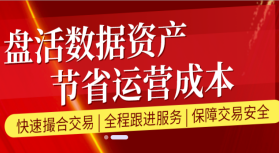Does Obama have any chance of influencing Chinese policy on trade,climate,etc?
发布:Minor_Blue | 分类:考研
关于本站
人大经济论坛-经管之家:分享大学、考研、论文、会计、留学、数据、经济学、金融学、管理学、统计学、博弈论、统计年鉴、行业分析包括等相关资源。
经管之家是国内活跃的在线教育咨询平台!
经管之家新媒体交易平台
提供"微信号、微博、抖音、快手、头条、小红书、百家号、企鹅号、UC号、一点资讯"等虚拟账号交易,真正实现买卖双方的共赢。【请点击这里访问】
期刊
- 期刊库 | 马上cssci就要更新 ...
- 期刊库 | 【独家发布】《财 ...
- 期刊库 | 【独家发布】“我 ...
- 期刊库 | 【独家发布】“我 ...
- 期刊库 | 【独家发布】国家 ...
- 期刊库 | 请问Management S ...
- 期刊库 | 英文期刊库
- 核心期刊 | 歧路彷徨:核心期 ...
TOP热门关键词
ItwillbeverydifficultforPresidentObamatoinfluenceChinaontrade–mainlybecausetradeisn’tviewedthesamewayinChinaasitishere.ThePresidentsayshewantsto“rebalance”theeconomicrelationshipbetweenChinaandthe ...
坛友互助群 |
扫码加入各岗位、行业、专业交流群 |
This is wishful thinking. True, the Chinese market is huge and growing fast. By 2009, China was second only to the United States in computer sales, with a larger proportion of first-time buyers. It already had more cell-phone users. Excluding SUVs, China sold as many cars (as recently as 2006, American bought twice as many). Even as the U.S. government was bailing out General Motors and Chrysler, the two firms’ sales in China were soaring; GM’s sales there are up 50 percent from last year. Proctor & Gamble is so well-established in China that many Chinese think its products (such as green-tea-flavored Crest toothpaste) are Chinese brands. If the Chinese economy continues to grow at or near its current rate and the benefits of that growth trickle down to 1.3 billion Chinese consumers, the country would become the largest shopping bazaar in the history of the world. They’ll be driving over a billion and will be the world’s biggest purchasers of household electronics, clothing, appliances, and almost everything else produced on the planet.
But in fact China is heading in the opposite direction of “rebalancing.” Its productive capacity keeps soaring but Chinese consumers are taking home a shrinking proportion of the total economy. Last year, personal consumption in China amounted to only 35 percent of the Chinese economy; ten years ago consumption was almost 50 percent. Capital investment, by contrast, rose from 35 to 44 percent over the decade.
China’s capital spending is on the way to exceeding that of the United States but its consumer spending is barely a sixth as large. Chinese companies are plowing their rising profits back into more productive capacity – additional factories, more equipment, new technologies. China’s massive $600 billion stimulus package has been directed at further enlarging China’s productive capacity rather than consumption. So where will this productive capacity go if not to Chinese consumers? Net exports to other nations, especially the United States and Europe.
Many explanations have been offered for the parsimony of Chinese consumers. Social safety nets are still inadequate, so Chinese families have to cover the costs of health care, education, and retirement. (China recently doubled its spending on these services but the total is still low by international standards – around 6 percent of the Chinese economy, compared with an average of around 25 percent social spending in most developed nations.) Young Chinese men outnumber young Chinese women by a wide margin, so households with sons have to save and accumulate enough assets to compete successfully in the marriage market. Chinese society is aging quickly because the government has kept a tight lid on population growth for three decades, with the result that households are supporting lots of elderly dependents and must save in anticipation of supporting even more. Finally, although the number of relatively wealthy Chinese is expanding, the number of relatively poor Chinese is expanding even faster, and the richer have a lower propensity to spend.
All these tell part of the story but the larger explanation for Chinese frugality is that the nation is oriented to production, not consumption. Production gives meaning and purpose to the Chinese economy. China wants to become the world’s preeminent producer nation. It also wants to take the lead in the production of advanced technologies. The United States would like to retain the lead but our economy is oriented to consumption rather than production. Deep down inside the cerebral cortex of our national consciousness we assume that the basic purpose of an economy is to provide more opportunities to consume. We grudgingly support government efforts to rebuild our infrastructure. We want our companies to invest in new equipment and technologies but also want them to pay generous dividends. We approve of government investments in basic research and development, but mainly for the purpose of making the nation more secure through advanced military technologies. (We regard spillovers to the private sector as incidental.)
China’s industrial and technological policy is unapologetically direct. It especially wants America’s knowhow, and the best way to capture knowhow is to get it first hand. So China continues to condition many sales by U.S. and foreign companies on production in China – often in joint ventures with Chinese companies. American firms are now helping China build a “smart” infrastructure, tackle pollution with clean technologies, develop a new generation of photovoltaics and wind turbines, find new applications for nanotechologies, and build commercial jets and jet engines. General Motors is developing a new subcompact in China, in collaboration with China’s high-tech alternative technologies center. GE is producing wind turbine components in China. Last week, Massachusetts-based Evergreen Solar announced it will be moving its solar panel production to China.
China also wants to create more jobs in China, and will continue to rely on exports. Each year, tens of millions of poor Chinese pour into China’s large cities from the countryside in pursuit of better-paying work. If they don’t find it, China risks riots and other upheaval. Massive disorder is one of the greatest risks facing China’s governing elite. That elite would much rather create export jobs even at the cost of subsidizing foreign buyers, than allow the yuan to rise and thereby risk job shortages at home. To this extent, China’s export policy is really a social policy, designed to maintain order. For these reasons, China will continue to peg the yuan to the dollar – when the dollar drops, selling yuan in the foreign exchange market and adding to its pile of foreign assets in order to maintain the yuan’s fixed relation to the dollar. This is costly to China, of course, but for the purposes of industrial and social policy, China figures the cost is worth it.
The truth almost no one wants to admit on either side of the Pacific is that both the United States and China are capable of producing far more than their own consumers are capable of buying. In the United States, the root of the problem is a growing share of total income going to the richest Americans, leaving the middle class with relatively less purchasing power unless they go deep into debt. Inequality is also widening in China, but the root of the problem is a declining share of fruits of economy growth going to average Chinese and an increasing share going to capital investment. Both societies are threatened by the disconnect between production and consumption. In China, the threat is civil unrest. In the United States, it is a prolonged jobs and earnings recession which, when combined with widening inequality, could create political backlash.
扫码或添加微信号:坛友素质互助


「经管之家」APP:经管人学习、答疑、交友,就上经管之家!
免流量费下载资料----在经管之家app可以下载论坛上的所有资源,并且不额外收取下载高峰期的论坛币。
涵盖所有经管领域的优秀内容----覆盖经济、管理、金融投资、计量统计、数据分析、国贸、财会等专业的学习宝库,各类资料应有尽有。
来自五湖四海的经管达人----已经有上千万的经管人来到这里,你可以找到任何学科方向、有共同话题的朋友。
经管之家(原人大经济论坛),跨越高校的围墙,带你走进经管知识的新世界。
扫描下方二维码下载并注册APP

免流量费下载资料----在经管之家app可以下载论坛上的所有资源,并且不额外收取下载高峰期的论坛币。
涵盖所有经管领域的优秀内容----覆盖经济、管理、金融投资、计量统计、数据分析、国贸、财会等专业的学习宝库,各类资料应有尽有。
来自五湖四海的经管达人----已经有上千万的经管人来到这里,你可以找到任何学科方向、有共同话题的朋友。
经管之家(原人大经济论坛),跨越高校的围墙,带你走进经管知识的新世界。
扫描下方二维码下载并注册APP

您可能感兴趣的文章
本站推荐的文章
人气文章
本文标题:Does Obama have any chance of influencing Chinese policy on trade,climate,etc?
本文链接网址:https://bbs.pinggu.org/jg/kaoyankaobo_kaoyan_621167_1.html
2.转载的文章仅代表原创作者观点,与本站无关。其原创性以及文中陈述文字和内容未经本站证实,本站对该文以及其中全部或者部分内容、文字的真实性、完整性、及时性,不作出任何保证或承若;
3.如本站转载稿涉及版权等问题,请作者及时联系本站,我们会及时处理。



